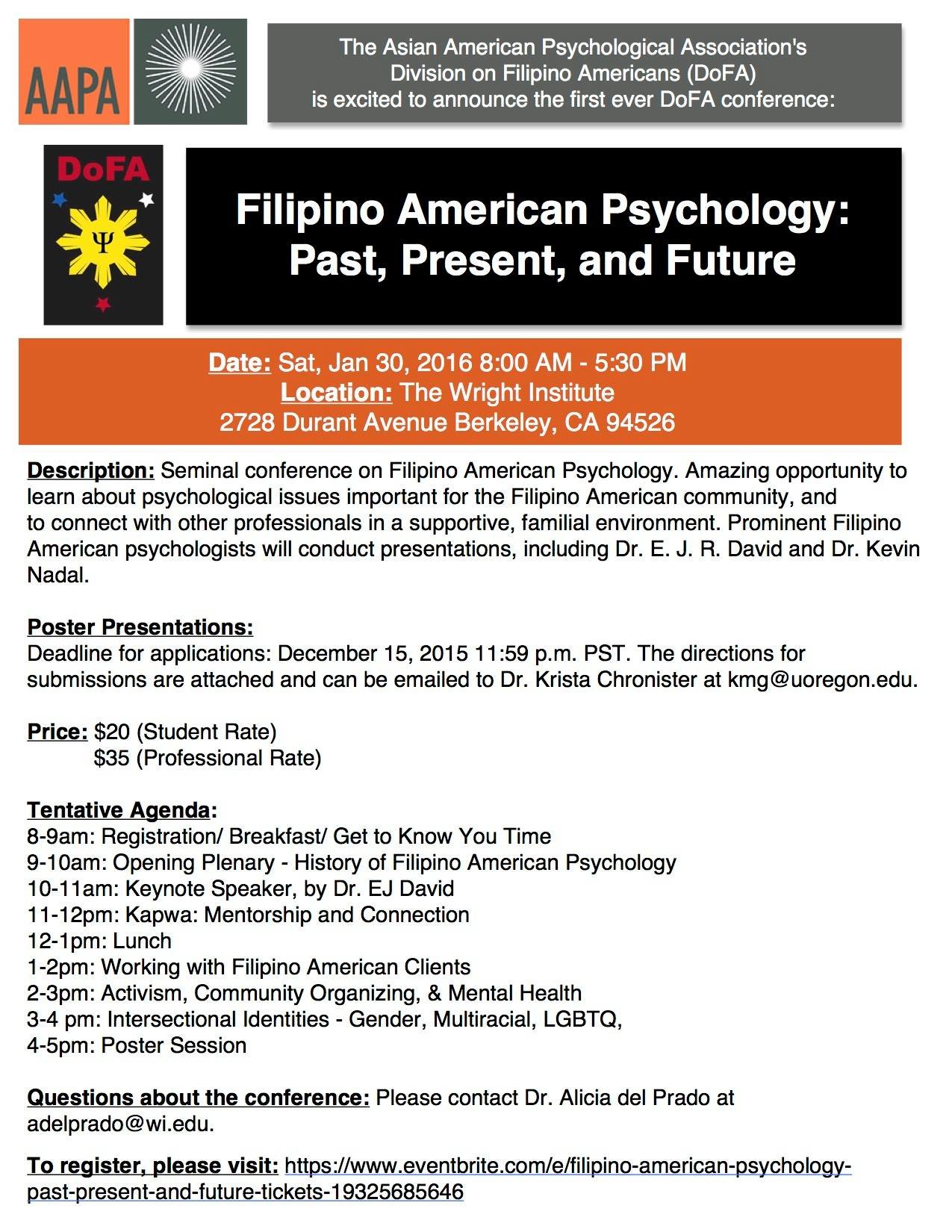Asian American Journal of Psychology | December 2015 Issue
Feature Article & Table of Contents
FEATURE ARTICLE:
“Annual Review of Asian American Psychology, 2014”
Su Yeong Kim, Yishan Shen, Yang Hou, Kelsey Tilton, Linda Juang, and Yijie Wang
AAPA would like to congratulate the authors of “Annual Review of Asian American Psychology, 2014,” which has been chosen as the Feature Article of the December 2015 issue. Below is a brief biography the lead author, Dr. Su Yeong Kim, and a brief insight into the inner workings of crafting such an article. We hope that the readers of AAJP will find this article (as well as the other articles) informative and helpful in their professional work. The Feature Article may be downloaded for free here, and the December 2015 issue’s Table of Contents is at the end of this post.
Brief Biography of Dr. Su Yeong Kim

Dr. Su Yeong Kim
Su Yeong Kim, Ph.D., is an Associate Professor of Human Development and Family Sciences at the University of Texas at Austin. She studies the intersection of family and cultural contexts in understanding the development of children of immigrant in the United States, with a focus on children of Chinese and Mexican origin. Her research has revealed that the commonly held perception of Asian American parents as “tiger parents” is inaccurate. In fact, her eight year longitudinal study of Chinese American families demonstrate supportive parenting as the most common type of parenting leading to the most optimal outcomes in terms of both academic and socio-emotional adjustment in Chinese American adolescents. Her studies on language brokering among Mexican American adolescents reveals that children experience both a sense of burden and efficacy in translating for their non-English fluent parents, and that their perceptions of the language brokering experience relate directly to their socio-emotional adjustment.
Reflections from the Lead Author, Dr. Su Yeong Kim
The writing of the Annual Review of Asian American Psychology for 2014 was an enormous undertaking, involving the coding of an initial set of 4,366 articles to arrive at 316 articles that met criteria for inclusion in the review. The coding and writing of the Annual Review of Asian American Psychology for 2014 involved not only six co-authors, but also more than 15 undergraduate research assistants to accomplish the feat. We were impressed with both the diversity and breadth of research on Asian Americans. Our review highlights the prominence of health related topics in Asian American psychology, and research on older adults becoming more prominent within the field of Asian American psychology. We also highlight the need for more longitudinal, developmental research in the field that samples more diverse ethnic groups among Asian Americans. Our review is the first to highlight some of the most prolific authors in the field of Asian American psychology, ranging from more recent Ph.D.’s such as Stephen H. Chen of Wellesley College to more established senior scholars like Shinobu Kitayama of University of Michigan. It is also the first to compile a list of the most frequent and prominent scholarly journals to publish research on Asian American psychology, to become an important resource for scholars in the field. The Annual Review of Asian American Psychology 2014 provides a comprehensive snapshot of current state of the field in Asian American psychology today.
AAJP Volume 6, Issue 4 TABLE OF CONTENTS
[Articles available for download through PsycNET]
[Feature Article] Annual review of Asian American Psychology, 2014.
Kim, Su Yeong; Shen, Yishan; Hou, Yang; Tilton, Kelsey E.; Juang, Linda; Wang, Yijie
Community integration of Burmese refugees in the United States.
Lee, Sungkyu; Choi, Sunha; Proulx, Laurel; Cornwell, Jennifer
The role of cultural beliefs in disordered eating among Asian-American women.
Tsong, Yuying; Smart, Rebekah
Depressive symptoms in South Asian, East Asian, and European Americans: Evidence for ethnic differences in coping with academic versus interpersonal stress?
Perera, Marisa J.; Chang, Edward C.
Effects of becoming a mother on the development of ethnic and racial identities in Korean transnationally and transracially adopted women.
Day, Stephanie C.; Godon-Decoteau, Danielle; Suyemoto, Karen L.


